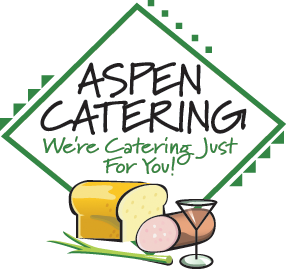Vegetarian, Vegan, Gluten-free and Keto Diet Catering
Vegetarian, Vegan, Gluten-free and Keto Diet Catering – what’s it all about?
And how do you cater these dietary restrictions?
When creating a catering menu for a group of people, it’s best to ask your guests if there are any dietary restrictions that should be considered. The most popular menu requests are vegetarian, vegan, gluten-free and the most recent menu request is keto friendly. Other limitations that affect catered menu planning are actual food allergies which should be treated very carefully and shared with any caterer you hire.
The most common allergies include milk, eggs, peanuts, tree nuts, shellfish, fish, soy and wheat. And some people have uncommon but still very real reactions to certain ingredients like spices, mushrooms, garlic, food additives and even some food dyes. Any and all information you collect about your guests’ special needs you should provide to your caterer and request they note those details on your menu.
 Vegetarian Catering Menus
Vegetarian Catering Menus
Vegetarian menus are fairly common and easy to provide. Vegetarians don’t eat animals, but they do eat products that come from animals. There are 4 types of vegetarians:
Lacto-ovo vegetarians eat dairy products and eggs but avoid meat, poultry and seafood.
Ovo vegetarians eat eggs but no dairy, meat, poultry or seafood.
Pescatarian vegetarians, though in the vegetarian category, do eat fish and seafood but no meat or poultry.
Vegan Catering Menus
The best way to think about vegan menu items is this: if the food source has a “mom” they can’t eat it. Beef, chicken, fish and seafood all have or had a mom so they rely on fruits and vegetables as the staple in their diet. In order to incorporate necessary proteins (meats) add menu items that have soy, tofu, edamame, whole grains (quinoa and oats), beans, seeds (pumpkin, hemp and tahini) and nuts (almonds, cashews and peanut butter).
Gluten-Free Catering Menus
People with celiac disease, or those who have sensitivity to gluten, can have reactions ranging from slight to severe and their menu needs should be taken seriously while others opt to follow this diet for non-medical reasons. Gluten is actually a protein found in wheat, rye and barley and all of these must be avoided in any menu for guests on this diet. Certain food ingredients can also contain gluten like modified food starch, malt and maltodextrin which could be used in processed fruits and vegetables, salad dressings, gravies and sauces. It’s best to have your caterer assist you in identifying suitable menu ideas for those on this diet because they should know what they can prepare to meet this demand.
 Keto Friendly Catering Menus
Keto Friendly Catering Menus
This is becoming a very popular request for catered meals. A ketogenic diet is based on very low-carbohydrate and high fat diet meaning many fruits and vegetables can’t be used. Black berries, raspberries and strawberries are acceptable as are vegetables grown above ground like cauliflower, cabbage, avocado, spinach and kale. For the protein portion, beef, pork, fish or seafood are good options but avoid processed meats like sausages and cold cuts. Condiments like ketchup, BBQ sauce, jams and jellies should be avoided but mayonnaise, cream cheese, guacamole and butter is welcomed because of the high fat content. Here is a great visual guide to what can be eaten on this diet
Professional caterers are starting to indicate menu items for all these needs on their menus like this:
(G) throughout the menu are typically gluten free
(K) throughout the menu are typically Keto Friendly
Or, they might have a separate special menu they can give you to address these needs.
Dairy Free / Lactose Intolerant Catering Menus
Menus using milk, butter and other dairy related ingredient have to be modified since these people can’t digest the sugar in milk which is called lactose. Silk Milk, Soy Milk and Lactose Free Milk are all common substitutes for traditional dairy milk. Dairy free menu would use no dairy at all and substitute plant-based alternatives instead.
